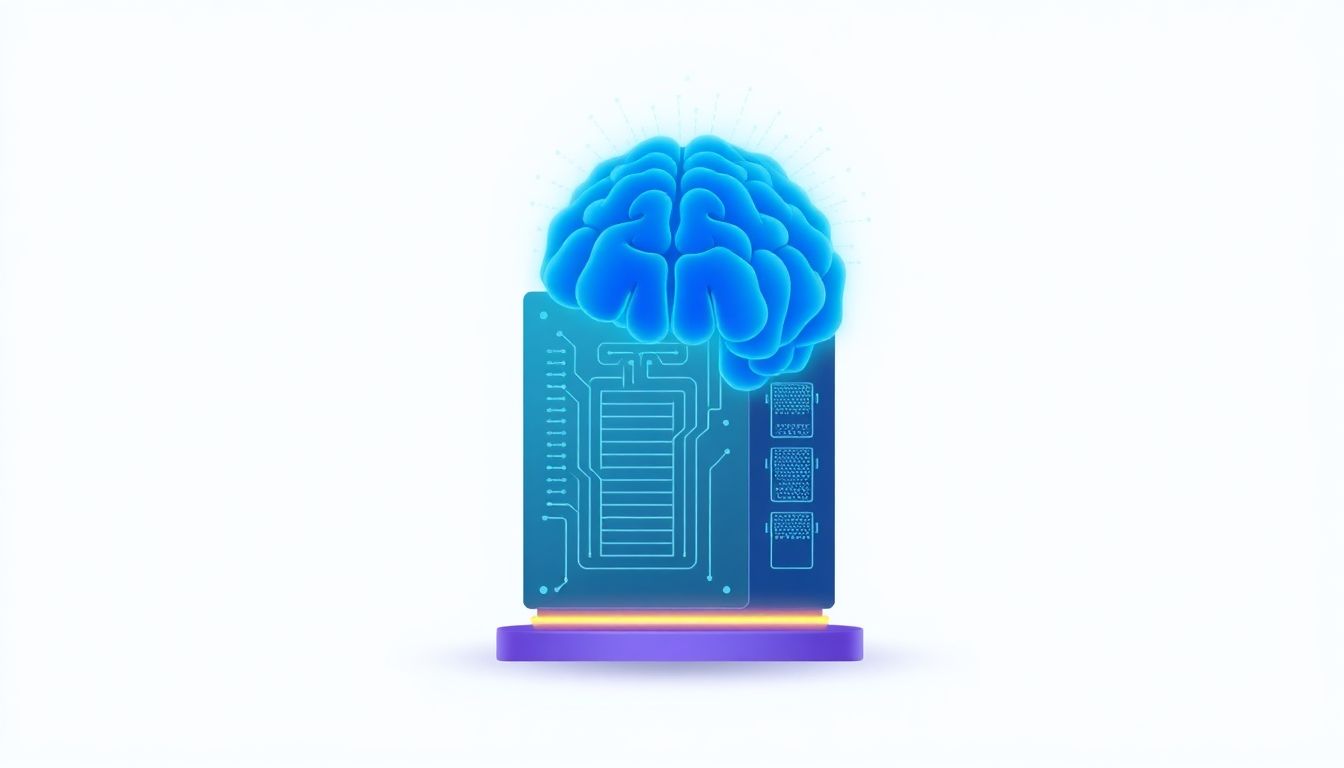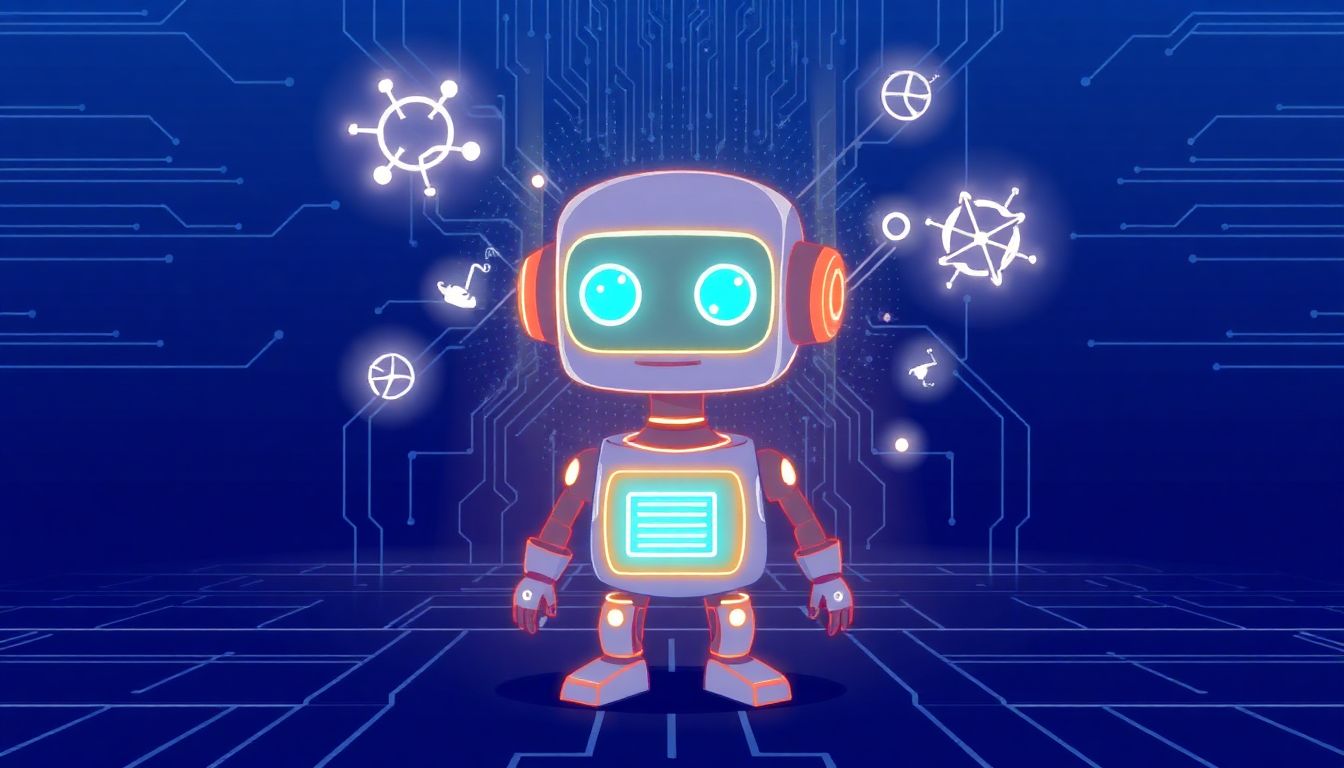Have you ever felt overwhelmed by the complexities of quantum computing? You’re not alone! Many of us find this cutting-edge technology intimidating, especially when paired with advanced tools like ChatGPT.
But what if I told you that combining ChatGPT with quantum computing could simplify your understanding and even enhance your projects? If you stick around, I’ll share how this dynamic duo can make your journey into quantum computing a lot smoother and more fun.
In this article, we’ll explore how ChatGPT can assist you in grasping concepts, provide practical examples, and highlight the incredible benefits of their collaboration. Let’s dive in!
Key Takeaways
- Combining ChatGPT with quantum computing can simplify complex concepts and enhance projects.
- ChatGPT streamlines research, generates ideas, improves communication, and aids in writing proposals.
- Basic concepts of quantum computing include qubits, superposition, and entanglement, which enable advanced problem-solving.
- ChatGPT assists in learning by breaking down complicated topics and providing quizzes for comprehension.
- It is valuable for developing quantum algorithms, troubleshooting coding issues, and visualizing quantum systems.
- This collaboration can boost research efficiency and foster a collaborative environment in teams.
- While helpful, always verify information from ChatGPT with reliable sources as it may not have the latest data.
- Future possibilities include user-friendly quantum programming aids and enhancing accessibility to quantum concepts for beginners.
- Use specific prompts with ChatGPT to maximize learning about quantum computing concepts and applications.

How ChatGPT Can Enhance Quantum Computing Projects
ChatGPT can greatly enhance quantum computing projects in various ways.
For starters, it can streamline research and brainstorming sessions.
Using ChatGPT, teams can generate a myriad of ideas related to quantum algorithms or applications.
It helps improve communication by translating complex technical jargon into easily understood terms.
Additionally, ChatGPT can assist in writing detailed project proposals or summarizing research findings.
Its ability to process natural language can augment team collaboration, making discussions more efficient.
In short, integrating ChatGPT into your quantum computing project can save time and enhance creativity.
Understanding Quantum Computing: A Simple Overview
Quantum computing can sound complex, but here’s a simple breakdown.
At its core, quantum computing uses quantum bits, or qubits, instead of traditional bits.
While a classical bit is either a 0 or a 1, a qubit can be both at the same time due to a property called superposition.
This allows quantum computers to process vast amounts of data simultaneously.
Another important concept is entanglement, where qubits become interconnected, influencing each other’s states.
These principles enable quantum computers to tackle problems that are currently unsolvable by classical computers.
The world of quantum mechanics may seem daunting, but understanding these basics can lead you to explore more advanced topics.
How ChatGPT Can Help You Learn Quantum Computing Concepts
ChatGPT can serve as a valuable tool for learning quantum computing concepts.
If you’re struggling to grasp a tough topic, you can ask ChatGPT for simplified explanations.
For instance, input “Explain superposition in quantum computing in simple terms.”
ChatGPT can break that down into more digestible pieces.
You can also use it to ask questions about specific theories by saying, “What is quantum entanglement and why is it important?”
Another useful function is to take quizzes; prompt with “Quiz me on quantum computing principles.”
This interactive learning approach allows you to personalize your educational journey.
Practical Examples of Using ChatGPT in Quantum Computing
There are several practical use cases of ChatGPT in quantum computing.
One example is in developing quantum algorithms.
You can ask ChatGPT, “What are some popular quantum algorithms and how do they differ?”
Case studies show success in using ChatGPT for simulations, helping researchers visualize quantum systems better.
Another application is troubleshooting any coding issues related to quantum programming by stating your problem directly, such as “Why does my quantum circuit code throw an error?”
Many researchers have found value in deploying AI-driven solutions for data analysis in quantum experiments as well.
These real-world implementations showcase how ChatGPT can simplify complex tasks within the field.

Benefits of Combining ChatGPT and Quantum Computing
The integration of ChatGPT and quantum computing offers several notable advantages.
One major benefit is enhanced research efficiency.
ChatGPT can help researchers quickly access and digest vast amounts of information.
This allows them to focus on what matters most: conducting experiments and developing algorithms.
Another benefit is its ability to provide a collaborative environment.
ChatGPT can facilitate discussions among team members by generating relevant questions and summarizing viewpoints.
Additionally, the use of ChatGPT can simplify complex technical documentation.
It can highlight key points in research papers, making it easier for teams to grasp essential information.
Ultimately, the combination of ChatGPT and quantum computing can lead to innovative solutions and streamlined workflows.
Common Questions About ChatGPT and Quantum Computing
Many people have questions about how ChatGPT relates to quantum computing.
For instance, one common question is, “How can ChatGPT assist in understanding quantum computing?”
ChatGPT can explain intricate concepts in simple terms and help clarify misunderstandings.
Another frequent concern is, “Are there limitations of using AI like ChatGPT in quantum research?”
While ChatGPT is knowledgeable, it may not always provide the most accurate or updated information.
So, it’s wise to cross-reference answers with reliable sources.
Moreover, beginners often wonder, “Can I rely on ChatGPT for serious quantum learning?”
Yes, it can be a helpful tool, especially for conceptual understanding.
However, deeper technical skills will often require formal education and hands-on experience.
Future Possibilities: ChatGPT and Quantum Computing Together
The future of combining ChatGPT with quantum computing looks promising.
One potential trend is developing advanced quantum algorithms that are user-friendly.
ChatGPT could serve as an interface to help new learners navigate quantum programming.
In the long run, we might see AI-driven simulations of quantum systems that provide instant feedback.
Moreover, as both fields evolve, AI will likely play a role in predicting quantum behavior, offering insights that were previously hard to glean.
Another exciting possibility is enhancing accessibility to quantum computing.
With ChatGPT’s help, those with limited technical backgrounds could engage with complex concepts.
This democratization of knowledge may accelerate innovations in quantum technologies.
In summary, the future holds vast possibilities for collaboration between ChatGPT and quantum computing.
Getting Started: Useful ChatGPT Prompts for Quantum Computing
If you’re eager to engage with ChatGPT for quantum computing, here are some effective prompts to get you started.
1. “Explain the concept of superposition in quantum mechanics.”
2. “List and describe the key differences between quantum bits and classical bits.”
3. “How does quantum entanglement work and why is it significant?”
4. “What are some applications of quantum computers in real-world scenarios?”
5. “Provide an example of a basic quantum algorithm and its purpose.”
6. “Can you summarize the latest advancements in quantum technology this year?”
7. “What challenges are researchers facing in quantum computing today?”
8. “Quiz me on quantum computing terminology and concepts.”
Using these prompts will help you maximize your interaction with ChatGPT and deepen your understanding of quantum computing concepts.

Future Possibilities: ChatGPT and Quantum Computing Together
The future of combining ChatGPT with quantum computing looks incredibly promising.
One potential avenue is creating adaptive learning tools that tailor quantum computing education to individual users.
Imagine a chatbot that learns your pace and preferences while guiding you through complex quantum algorithms.
This functionality could bridge the gap for those hesitant to dive into this advanced field.
As natural language processing improves, we might see enhanced real-time feedback mechanisms for quantum programming.
Users could input their code, and ChatGPT could instantly suggest optimizations, mitigating common coding errors.
Furthermore, cloud-based quantum computing platforms may integrate AI for user assistance, making it easier to run experiments.
In the long run, expect new partnerships between AI developers and quantum researchers to spark innovative projects.
These collaborative efforts could lead to breakthroughs in both fields, pushing boundaries like we’ve never seen.
In summary, the intersection of ChatGPT and quantum computing stands poised to reshape how we approach learning and research.
Getting Started: Useful ChatGPT Prompts for Quantum Computing
If you want to get the most out of ChatGPT regarding quantum computing, here’s a list of prompts you can use right away.
1. “Explain quantum superposition with an analogy that’s easy to understand.”
2. “List the main differences between quantum computing and classical computing.”
3. “In what real-world applications is quantum computing currently being used?”
4. “Explain how quantum entanglement works, with an example.”
5. “Can you summarize the implications of quantum computing for cryptography?”
6. “What are the current limitations of quantum computing technology?”
7. “Provide a step-by-step explanation of how to create a basic quantum circuit.”
8. “What are some of the most exciting quantum computing breakthroughs in the last year?”
9. “Help me understand the significance of Shor’s algorithm.”
10. “Generate a quiz for me on quantum mechanics principles and their applications.”
Using these prompts will help you engage with ChatGPT effectively and deepen your understanding of quantum computing concepts.
FAQs
Quantum computing utilizes quantum bits (qubits), allowing it to process information in dramatically different ways than classical bits. This enables quantum computers to solve complex problems more efficiently, especially in areas like cryptography and optimization.
ChatGPT helps explain complex quantum computing concepts in simple terms, provides examples, and answers specific questions, making it easier for learners to grasp intricate subjects and enhancing their overall understanding.
ChatGPT can assist in project brainstorming, generating code snippets, explaining algorithms, and troubleshooting issues. This collaboration streamlines the development process and boosts productivity in quantum computing projects.
Future possibilities include enhanced integration where ChatGPT optimizes quantum algorithms and assists with real-time simulations, making quantum computing more accessible and effective for researchers and practitioners in various fields.
